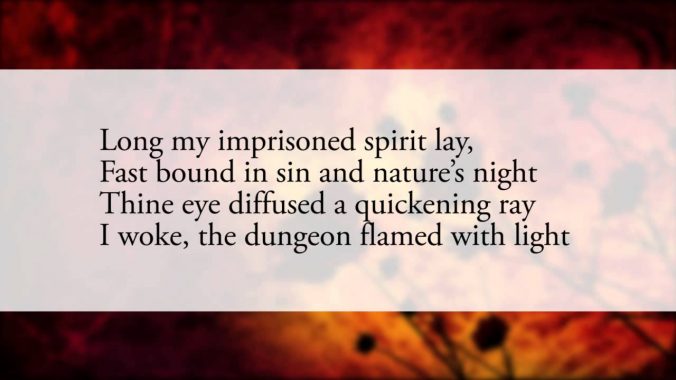 So, are we fools? Is the cross-message nonsense? Are its preachers idiots? No. No. And no. We who believe in Jesus Christ have received God’s wisdom.
So, are we fools? Is the cross-message nonsense? Are its preachers idiots? No. No. And no. We who believe in Jesus Christ have received God’s wisdom.
Of course, our popular culture doesn’t prize wisdom. That’s obvious from bestseller lists, college classroom lectures, and the following from “Psychology Today” magazine . . .
“ Psychologists tend to agree that [wisdom] involves an integration of knowledge, experience, and deep understanding that incorporates tolerance for the uncertainties of life as well as its ups and downs . . .Today, we turn to the internet for everything, with Wikipedia being our web-based wisdom, and Google providing the search capabilities that often surpass our failing memories . . . This raises many important questions, one of which is to what degree can we rely on web-based wisdom, perhaps at the expense of our own ‘human’ knowledge and memory?” (https://www.psychologytoday.com/blog/metacognition-and-the-mind/201404/wisdom-ask-siri-or-ask-grandma).
Psychologists’ wisdom-definition is, well, foolish. As is the notion of seeking wisdom on the web. And the above-paragraph implies our only alternative to the web is wisdom found in “our own human knowledge and memory”.
Anyway, what’s the big deal? The name of the game now is information. That’s power. That’s success. Guess it depends on how you spell “success”. The world through its wisdom does not know God (1 Corinthians 1:21). Doesn’t sound like success to me.
Having rightly bashed human wisdom in 1:18-2:5, Paul now turns to commend God’s wisdom.
THE NATURE OF GOD’S WISDOM
We do, however, speak a message of wisdom among the mature, but not the wisdom of this age or of the rulers of this age, who are coming to nothing. No, we speak of God’s secret wisdom, a wisdom that has been hidden and that God destined for our glory before time began. None of the rulers of this age understood it, for if they had, they would not have crucified the Lord of glory. However, as it is written: “No eye has seen, no ear has heard, no mind has conceived what God has prepared for those who love him”– but God has revealed it to us by his Spirit (1 Corinthians 2:6-10a).
Most will admit God is wise. He must be—he’s God! But most will understand God’s wisdom to be just superior human wisdom available to whomever searches for it.
Paul points out that God’s wisdom lies in a whole other category from “the wisdom of this age” or those whose influence shapes this age. Want proof? The “wise” movers and shakers of this age “crucified the Lord of glory”. Christ, who is wisdom incarnate, they executed like a common criminal—and would do the same today.
Furthermore, God’s wisdom leads to glory to which the human eye is blind, the human ear deaf, and to which the human mind cannot conceive. Enroll at Harvard, climb the highest mountain to the wisest sage, gather as much information as technologically possible and you’ll not discover God’s wisdom.
God’s wisdom is secret, hidden. And God reveals it only to those he gives the Spirit. You might disagree. Want God’s wisdom? Just read the Bible. It’s all there. True. But the human eye sees it there, hears it there and conceives it there only when the Spirit reveals it there. This is why some of our greatest intellectuals trash the Bible as foolishness.
KNOWING GOD’S SECRET WISDOM
The Spirit searches all things, even the deep things of God. For who among men knows the thoughts of a man except the man’s spirit within him? In the same way no one knows the thoughts of God except the Spirit of God. We have not received the spirit of the world but the Spirit who is from God, that we may understand what God has freely given us. This is what we speak, not in words taught us by human wisdom but in words taught by the Spirit, expressing spiritual truths in spiritual words (1 Corinthians 2:10b-13).
Unless I tell you, you don’t know what I’m thinking. In the same way, only God knows God’s thoughts. In fact, we don’t even understand what God has freely given us. Oh, we can read about the gift of his Son and hear it heralded again this Christmas. But Jesus’ birth is just a sweet, sentimental story and his crucifixion a political miscalculation on his part (or some vague means for our forgiveness, whatever that means) unless we receive “the Spirit who is from God.” Only he reveals to our sin-darkened mind the significance of Jesus’ birth and death. Only he enables us to appreciate the value of “what God has freely given us.”
Even “charismatic” orators can’t break through our mental sin-haze. Only words “taught by the Spirit” (the Scriptures themselves and the words of an ordinary preacher deliberately dependent on the Spirit) can “express (God’s) spiritual truths”.
And we receive the Spirit when we trust our lives to the crucified Christ and depend on the Spirit to transform us.
PEOPLE OF THE SPIRIT
The man without the Spirit does not accept the things that come from the Spirit of God, for they are foolishness to him, and he cannot understand them, because they are spiritually discerned. The spiritual man makes judgments about all things, but he himself is not subject to any man’s judgment: “For who has known the mind of the Lord that he may instruct him?” But we have the mind of Christ. (1 Corinthians 2:14-16).
In some Christian circles, the Spirit is the forgotten member of the Trinity. But not to Paul. Elaborating on the contrast between the apostle’s message of wisdom and the wisdom of the age (1:6), Paul argues that the absence of the Spirit (“the man without the Spirit”) prohibits a person from accepting and understanding the things that come from the Spirit. Such a person cannot discern what God is doing in the world. Not because his IQ is embarrassingly low. Nor because he’s half-hearted about God. Because he is “without the Spirit.”
“The spiritual man” isn’t a superior category of Christian. “The spiritual man” is simply a Christian, a believer in the crucified Christ, a man with the Spirit, a sinner empowered by the Spirit to accept and understand what God is doing in the world.
To say it as Paul does, “the spiritual man” is enabled to “make judgments” about (ascertain) what God is doing to save his people. At the same time, he’s not subject to the judgments of persons without the Spirit (“the message of the cross is foolishness”) because those persons are “without the Spirit”.
Or as Paul asks rhetorically, “ . . . who has known the mind of the Lord that he may instruct him?” The un-Spirit man cannot know the mind of the Lord. “But we have the mind of Christ”. In other words, we who have the Spirit can know the mind of the Lord (the mind of the crucified Christ).
Why, we might ask, does Paul emphasize the Spirit when it comes to the message of the crucified Christ? Because for him, salvation is not only (or even primarily) “legal.” In Romans 3:through 5 he declares that sinners are “justified by faith” (declared right with God). That’s “legal” standing before God and his Law. But for Paul, salvation is experiential as well. And this transformation is affected by the Spirit.
THE CROSS AND THE SPIRIT
No, we’re not fools. We have God’s wisdom because we have God’s Spirit. And we have God’s Spirit because he has been freely given us by grace through faith in Christ. That calls us to live cross-centered. Which is to say, humbly. Willing to sacrifice. Embracing suffering remembering Christ suffered for us. And boasting only in Christ.
Does that mean we go around bragging that Christ is our Savior and Lord? No, I think it means we praise and worship him. Remembering we’re wise with Another’s wisdom. Remembering we’re being transformed by the Spirit. Remembering on that Day we won’t pride ourselves on how smart we were to get there. But worship him who graciously saved us by the Spirit.




Recent Comments